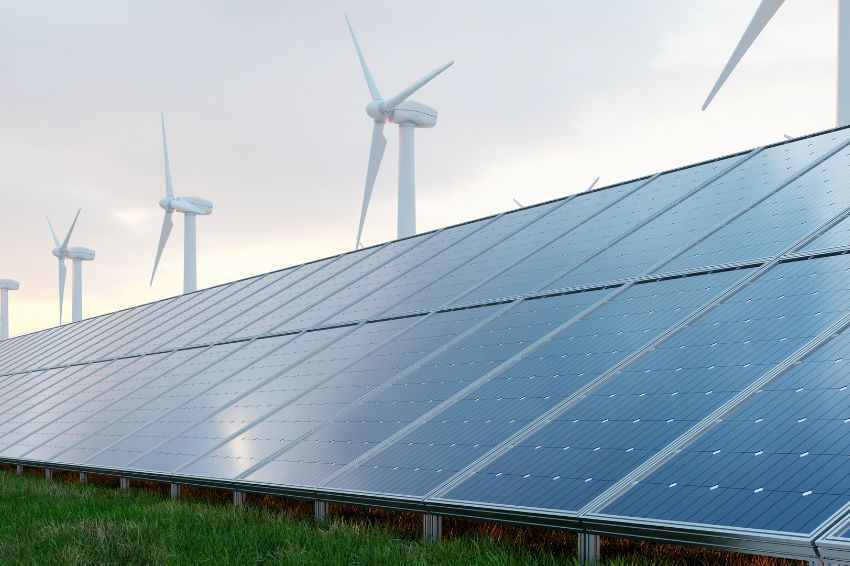Brazil is a protagonist in the energy area and has the potential to increase the participation of renewable sources in its matrix to be even more competitive and aligned with ESG criteria and, with this, contribute to companies becoming more competitive.
The assessment was carried out by Nelson Al Assal Filho, director of standardization at ABNT (Brazilian Association of Technical Standards), during 8th Large Construction Infrastructure Forum, which dealt with the theme “Opportunities and Challenges of the Energy Sector in Brazil”, on August 25th.
Fabiane Ferrão, manager of the Renewable Business Unit at TRACTEBEL Engie, also commented on the subject and highlighted that renewables allowed the industrial sector to reduce its energy costs.
“In some cases, they also made the segment independent by producing its own electricity, with the possibility of selling surplus production, earning additional income and achieving a positive environmental impact,” he reported.
However, for Felipe Gonçalves, Research Superintendent at FGV Energia, in the short term, the electricity sector will still need fossil resources, even when the use of renewables has expanded. The hydrothermal system – a water source complemented by natural gas thermoelectric plants – will still be the majority.
Manoel Ribeiro, superintendent of New Business Development at Álya Construtora, says the hydroelectric source is the battery and the basis of the system. Therefore, other hydroelectric plants will be built in the Amazon region, which still has a lot of potential to be explored.
“We cannot give up on other hydroelectric plants, because it would increase the dispatch of thermal energy, resulting in higher prices and costs, failure to meet COP commitments and acceleration of carbon dioxide emissions”, he explained.
From his point of view, the diversification of the matrix contributes to expanding the country's capacity, to serve the population, to the competitiveness of the industry and to an adequate price of energy.
Importance of solar energy
Al Assal Filho pointed out that the time for the energy transition is short, requiring a leap to a new model, where solar fountains and wind will be fundamental.
According to him, decarbonization is not just about producing energy, but also about better managing electricity, bringing greater eco-efficiency to the network and devices, improving performance and energy efficiency.
In this sense, he stated that floating photovoltaic technology is a clean, sustainable, environmentally friendly solution. “Developed by Brazilians, with the help of advanced computing and a multidisciplinary team, the system has demonstrated robustness and performance in Brazilian hydroelectric plants, such as UHE Itumbiara and UHE Belo Monte, in addition to serving an indigenous community in the Amazon region”.
“In this community, the technology provides 24 hours of energy without cutting down a tree, without emitting a gram of CO2 into the forest atmosphere and without contaminating the soil with diesel”, emphasized Demóstenes Barbosa, president of Base Energia Sustentável.
The executive highlighted that the goal is to scale the technology, “as we see the potential to double the energy generation capacity in Brazil, and this using less than 10% of hydroelectric plant reservoirs”.
Regulatory modernization
Another important point is the regulatory modernization of the energy sector which, according to Goncalves, has been important to create a robust environment for a greater participation of renewable sources, to operate the system in a safer way and for the entry of digitalization, bringing the possibility of consumers having a more relevant role in the electricity sector.
He also recalled the Brazilian potential of biofuels and bioenergy, and the opportunity to produce and export H2 (green hydrogen) and to manufacture green products.
“If you think about the large volumes of electrical energy for the production of H2, an alternative will be the implementation of offshore wind farms close to the Brazilian coast and the hydrogen plant. The set of these technologies can bring gains in scale, cost reduction and competitive development of the industry”, said the FGV superintendent.
Using wind farms with solar
Fabiane's presentation at the forum also addressed investors' interest in taking advantage of wind farm areas to place photovoltaic solar modules, as the existing distribution and transmission infrastructure can be shared, reducing infrastructure costs, in addition to rapid implementation.
Among the challenges are: the need for studies to verify the capacity of the transmission system with a new injection of wind farms, and the adoption of strategies to reduce intermittency, such as combined accessory sources and energy storage.

















